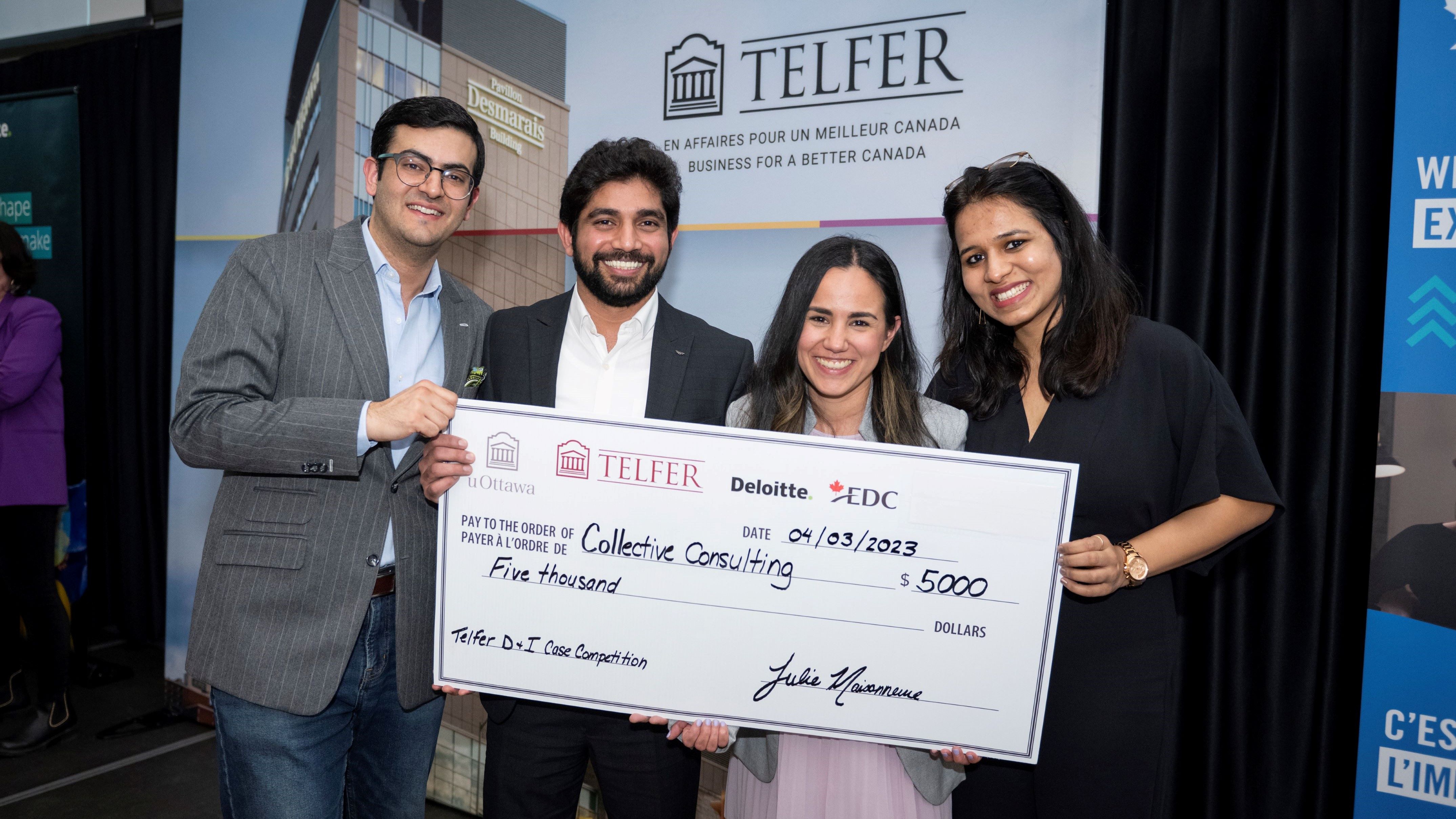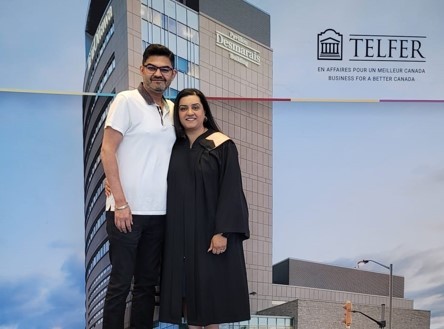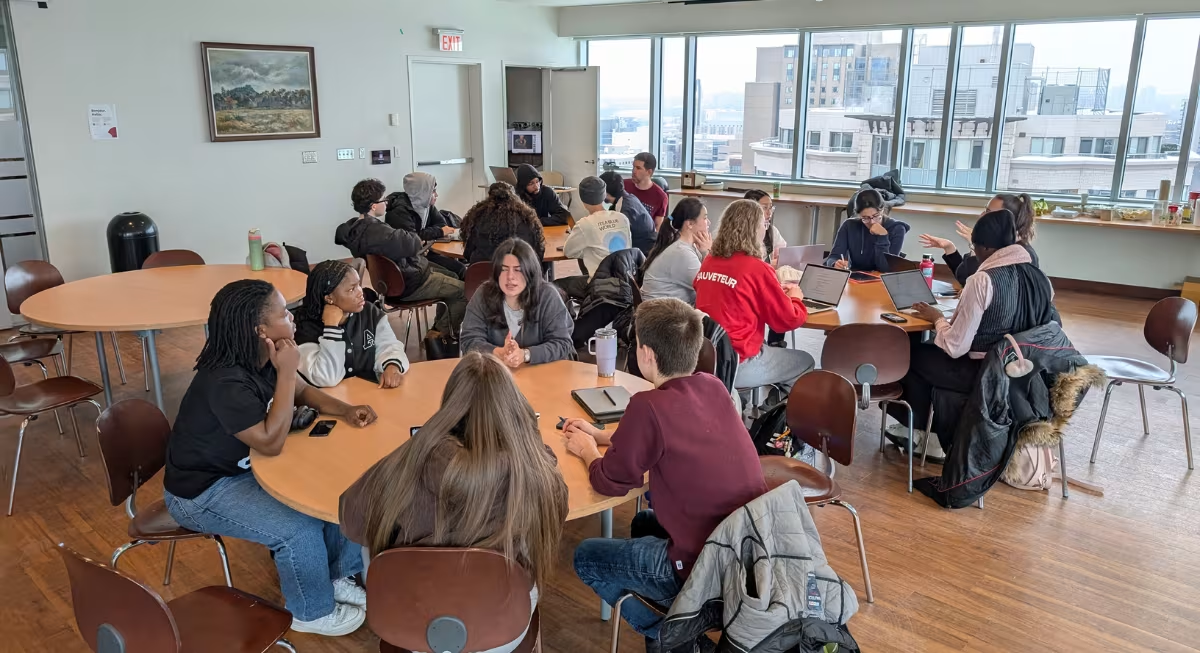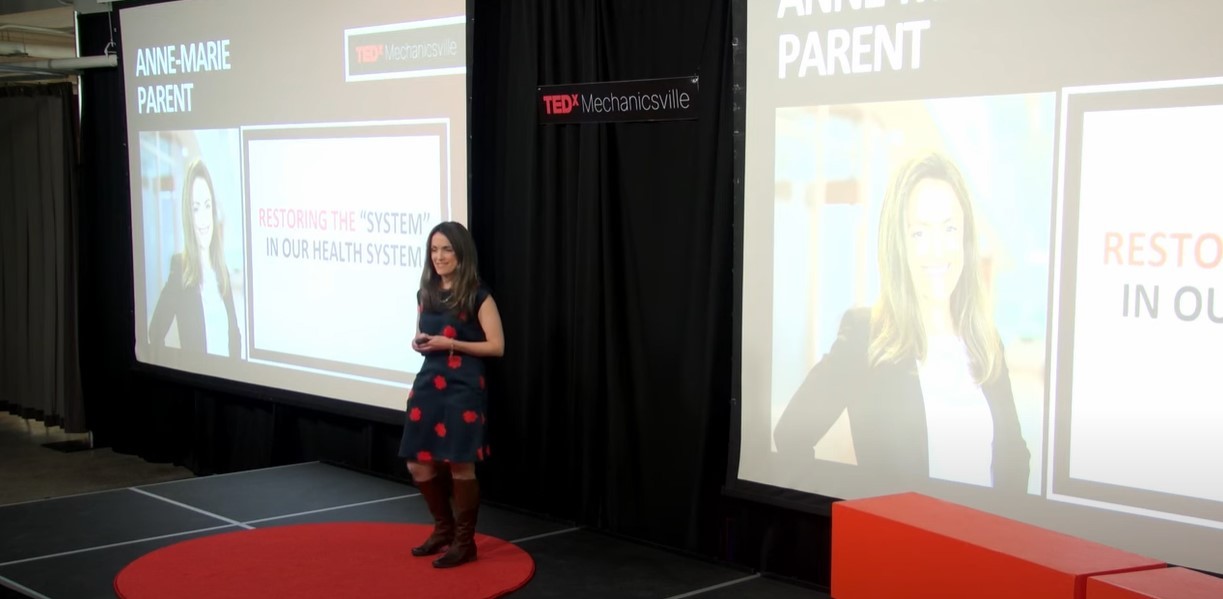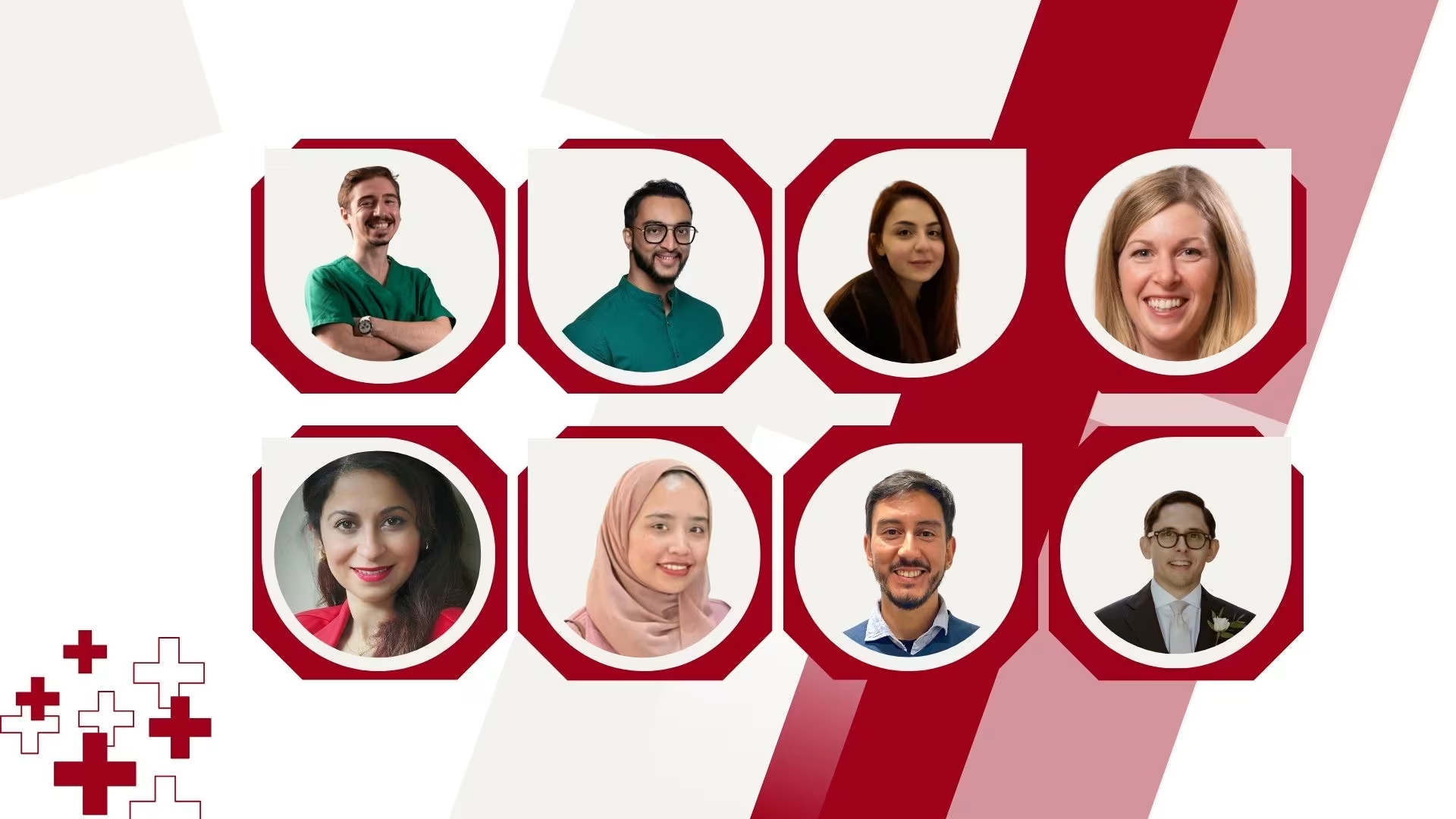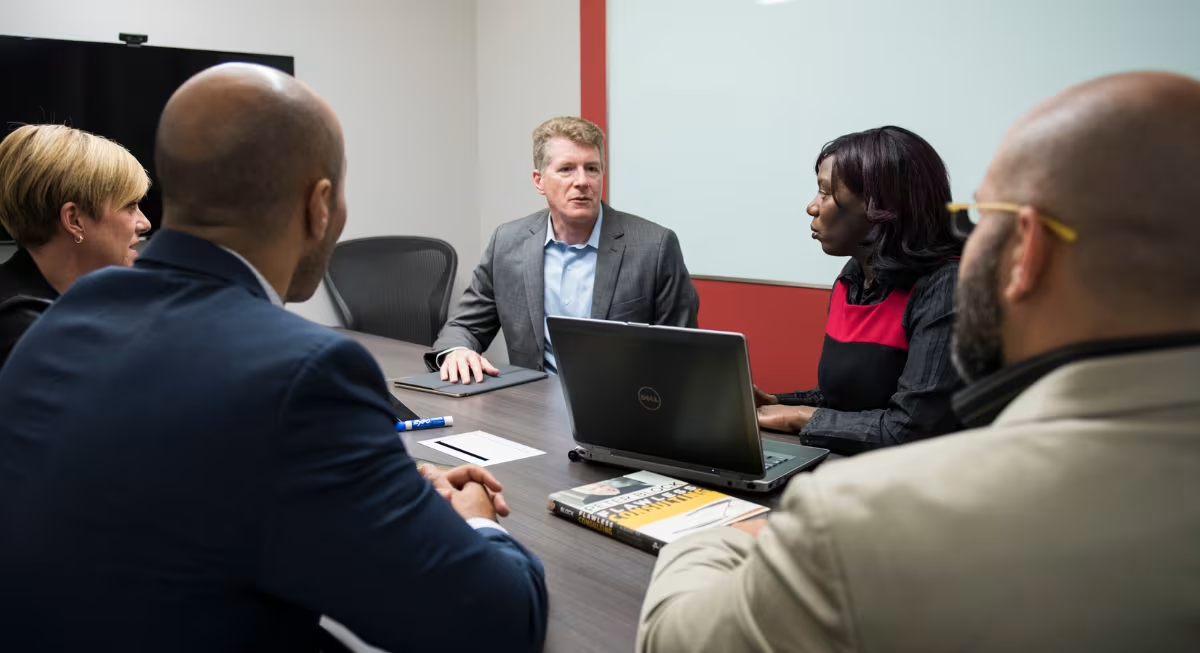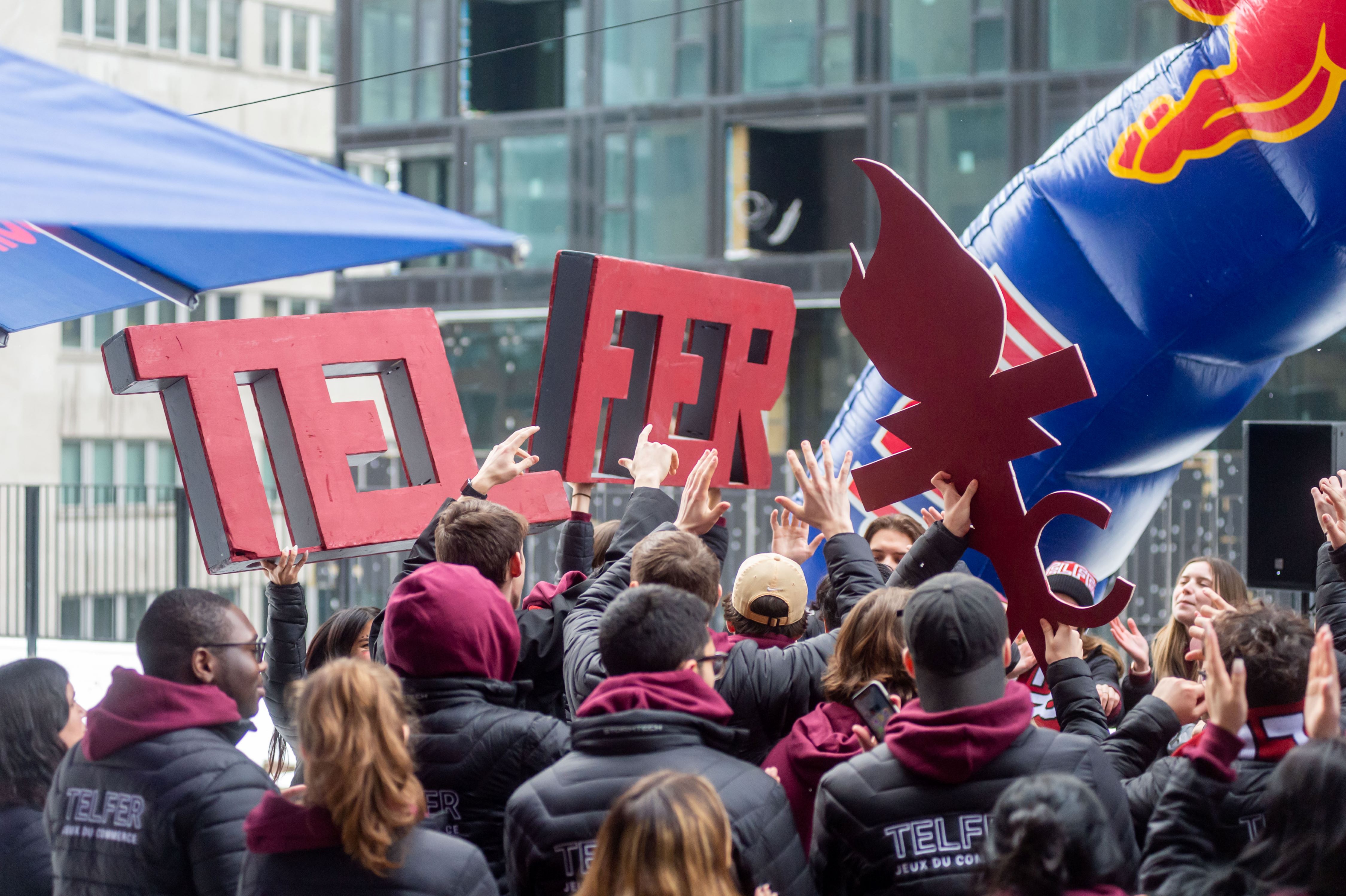Each year at the Telfer School of Management, the MBA Diversity and Inclusion Case Competition brings together MBA students across Canada to address real business issues in the context of diversity and inclusion. The seventh annual competition brought together 10 teams from Canadian universities in March 2023 to tackle a case about food insecurity in Canada. Export Development Canada (EDC) and Deloitte have proudly sponsored this competition since its inception in 2016 to join us in challenging MBA students to solve real-world business problems with an equity, diversity, and inclusion (EDI) lens.
As the first Canadian competition of its kind, it provides participating teams the opportunity to propose solutions to address business cases in real organizations. Participants gain valuable skills and experience all while demonstrating a commitment to social responsibility and ethical decision-making. We created this competition to foster a culture of inclusivity and sustainability in the business world and to prepare the next generation of leaders for global challenges. We hope to enable MBA students to address current and emerging issues and to apply their knowledge gained to future challenges in their careers. We aim to be a leader in diversity and inclusion education and research.
The Impact of Climate Change on Food Insecurity in Canada
This year’s case focused on the disproportionate effects of climate change on individuals living in Northern Canada, particularly when it comes to food insecurity. There is an imbalance between hunting and the ability to replenish food supply, with two-thirds of the population relying on hunting in Nunavut. Participants investigated how business leaders can address this issue with respect and empathy. This theme highlights the importance of environmental justice and Indigenous rights while inspiring MBA students to think creatively and collaboratively about solutions to benefit all stakeholders.

According to the National Oceanic and Atmospheric Administration’s Arctic Report Card, the Arctic is warming up at a rate twice as fast as the rest of the world, which has significant consequences for Indigenous peoples inhabiting this region who rely on traditional ways of life. This leads to disruption in the food supply for communities who are remotely isolated or who are faced with needing to buy expensive imported food which is not easily accessible. To address this issue, business leaders can work with Indigenous communities to develop sustainable solutions that respect Indigenous values and priorities. Competition participants were able to gain a better understanding of this complex challenge facing business leaders today and develop the skills they need to make a positive impact to address food insecurity in Canada.
Each MBA team examined this critical issue facing Northern communities in Canada and submitted an Innovative Playbook, or executive summary, one week in advance. Participants prepare these reports to add deeper context in their proposed solution presented at the competition and supply the judges with further insight when reviewing each proposal following their presentation.
This year, students were also joined by the Deloitte Greenhouse team who kicked off the first day with an interactive session designed to engage participants intellectually, emotionally, and physically with a particular focus on the impact of climate change on food insecurity in Canada. Throughout the competition, participants were periodically invited to join the interactive sessions.
Maintaining Tradition in Nunavut Communities
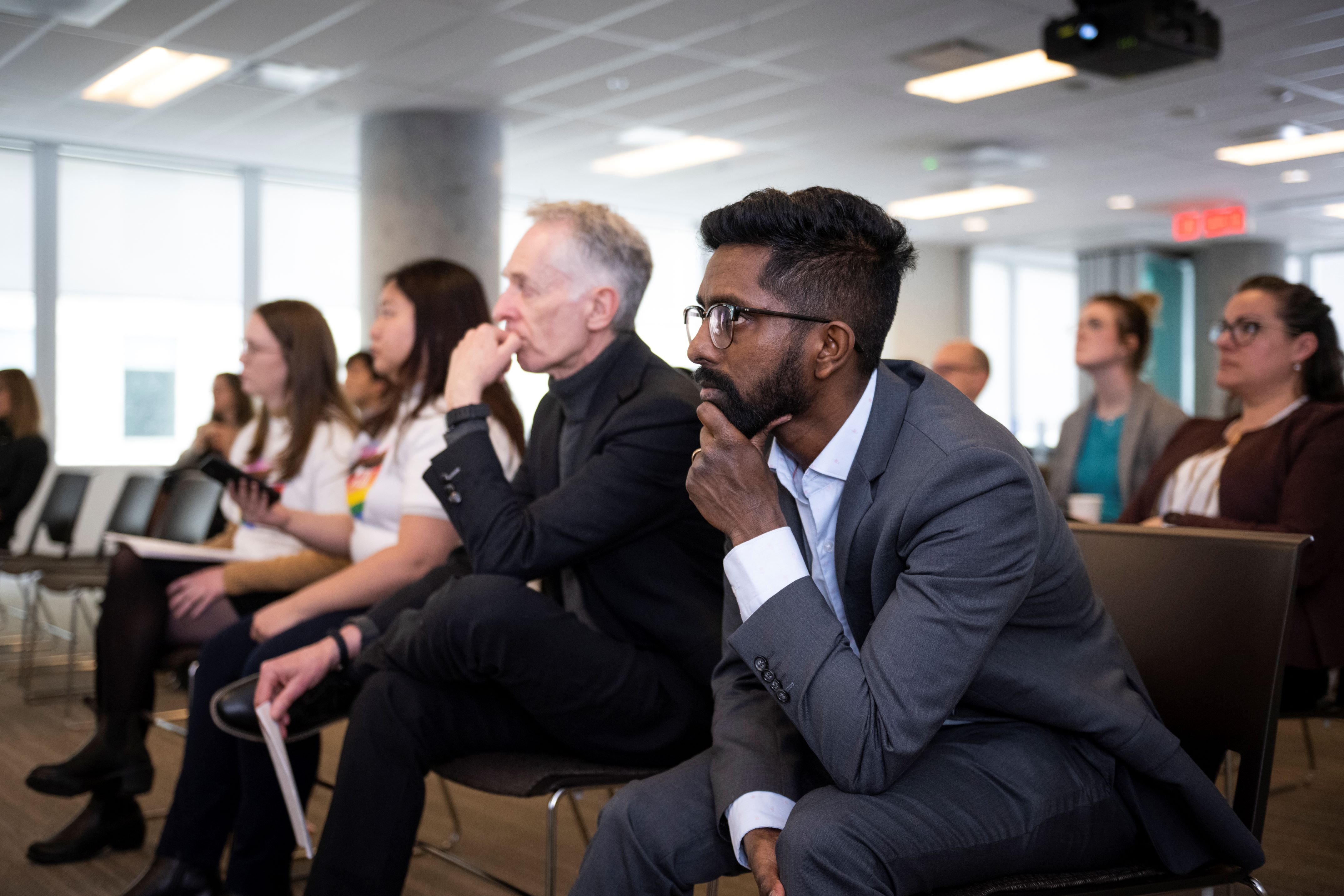
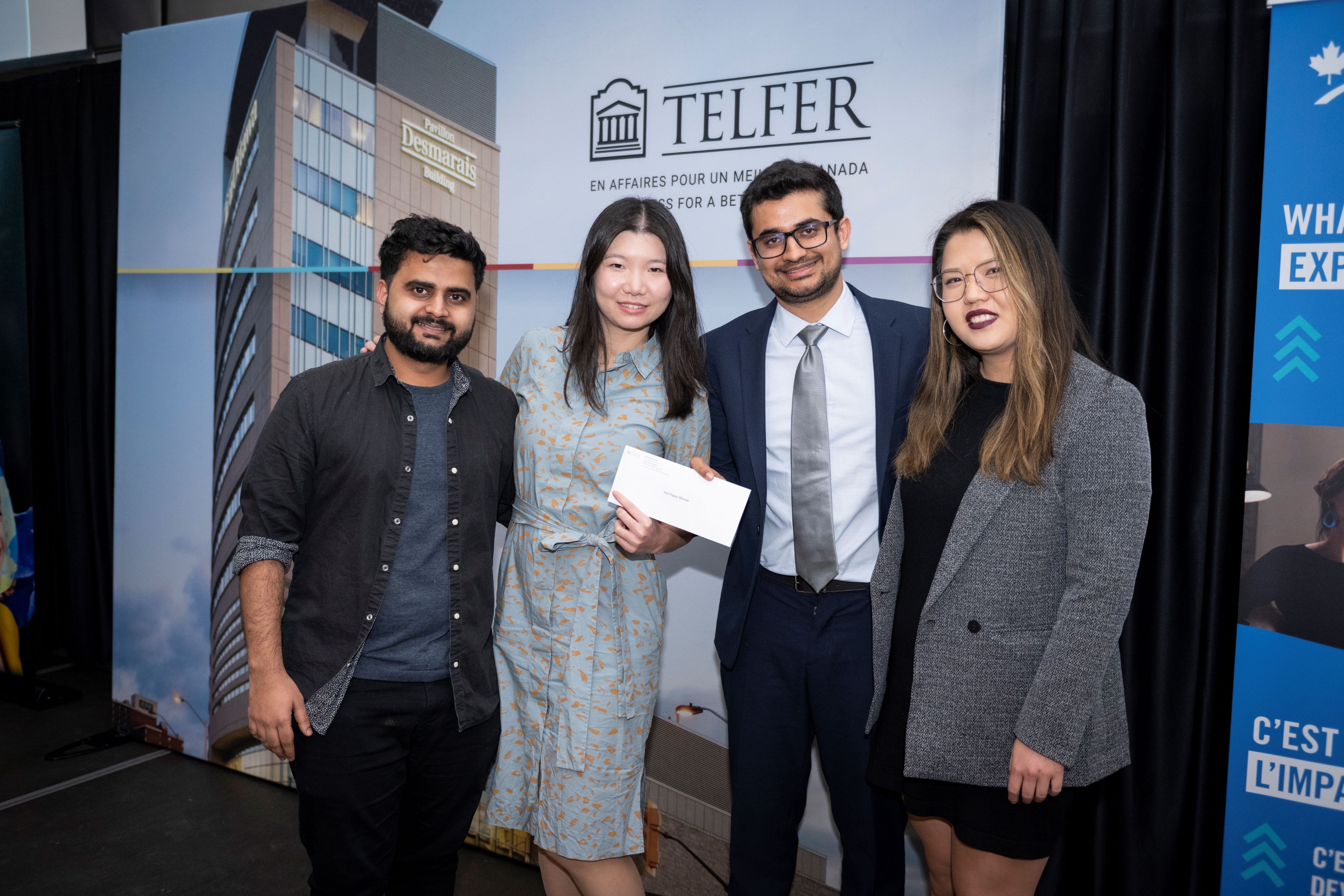
This year’s winning team, named Collective Consulting, included Haskayne School of Business MBA students, Ariana Garcia, Nishtha Baranwal, Imran Basha and Sushain Sehgal , emerged victorious at the 7th annual case competition. The proposal sought to address the impact of climate change and the loss of traditional knowledge around harvesting practices in the North on access to traditional foods. They suggested establishing a social enterprise that would restore the value of traditional knowledge while ensuring equitable access to food resources. Their proposal received a cash prize of $5,000.
The Haskayne School of Business team proposes to establish an enterprise named Bear Warehouse Corporation, which will be a Canadian retailer that focuses on high-quality gear and equipment for outdoor activities, such as hunting gear and Geographic Information System (GIS) safety system. The team believes that nature has a lot to offer, and they want to share their passion for it with others while supporting communities to increase their people's well-being through the conservation, respect, and appreciation for nature and wildlife.
Their Diversity and Inclusion (D&I) vision is based on allyship and how they can support and advocate for everyone's rights. Their commitment is to promote initiatives for the conservation and protection of the land. They decided to solve the problem of food insecurity, which is a basic human right, and a serious issue in Nunavut. They analyzed the macro environment in Nunavut, and two factors stood out: climate change and food insecurity. They feel that addressing food insecurity is of the highest priority because 70% of Nunavut is facing food insecurity.
There are many challenges that are preventing Nunavut from achieving equitable food security, such as transportation, food costs, unemployment, and climate change. The team proposed to create opportunities while strengthening the relationship with their stakeholders and increasing the safety and protection of the environment, through an enriching experience that raises awareness and trust.
The competition gave participants a chance to share their experiences and learn from each other. They also gained valuable skills and insights for their personal and professional growth. The team from Alberta School of Business - University of Alberta won the second prize of $3,000. Eddie Edward, one of the team members, said, “This case challenge was a great opportunity. It helped me to improve my critical thinking and presentation skills. I also had a lot of fun connecting and learning from other people who shared similar interests.” His teammate, Winatcha Hart, added, “This was a true challenge for a better Canada.” The teams from Concordia University - John Molson School of Business and DeGroote School of Business - McMaster University received the third and fourth prizes of $1,000 and $500 respectively. They also expressed their gratitude and satisfaction for being part of this meaningful event.
The Seventh Edition of the MBA D&I Case Competition
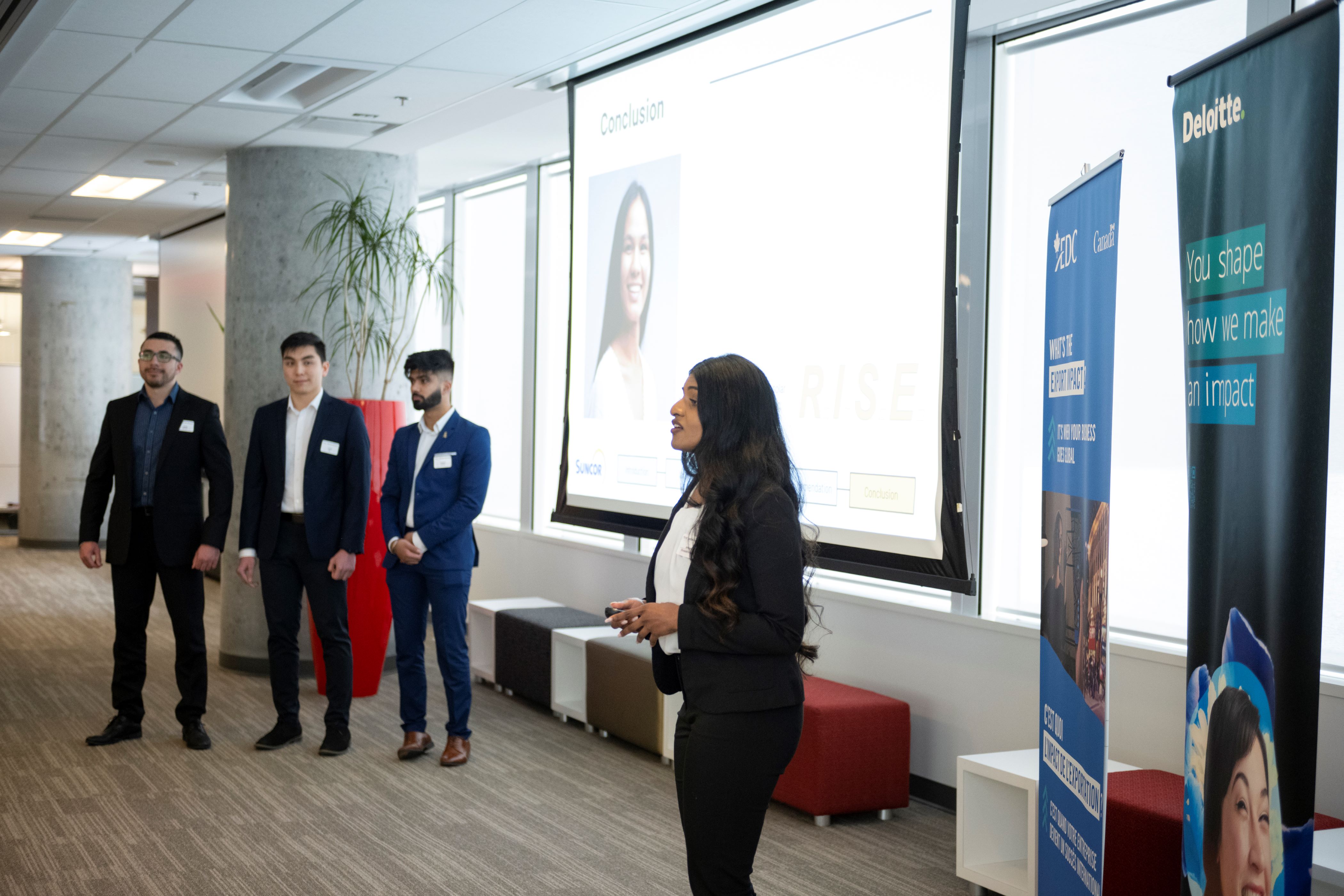
The team Haskayne placed first in the competition, followed by the second-place team from Alberta School of Business - University of Alberta, who won a prize of $3,000 for their proposal. The third and fourth-place teams represented the John Molson School of Business at Concordia University at the DeGroote School of Business at McMaster University at the competition and received cash prizes of $1,000 and $500, respectively.
The competition gave participants a chance to share their experiences and learn from each other. They also gained valuable skills and insights for their personal and professional growth. The participants expressed their gratitude and satisfaction for being part of this meaningful event. Eddie Edward, one of the second-place team members, shared her takeaways: “This case challenge helped me to improve my critical thinking and presentation skills. I also had a lot of fun connecting and learning from other people who shared similar interests.” Edward’s teammate, Winatcha Hart, also shared that he felt “this was a true challenge for a better Canada.”
The Next MBA Diversity and Inclusion Case Competition
The Telfer School of Management's Annual MBA Diversity and Inclusion Case Competition provides MBA students with a unique platform to tackle complex, difficult business problems related to diversity and inclusion. By providing students with access to resources, interactive team activities, and expert feedback, the competition enables participants to develop their critical thinking, problem-solving, and presentation skills while promoting diversity and inclusivity in business. This event highlights the need for continued focus on these critical issues in the business world and encourages MBA students to take part in similar events and initiatives in the future.
The steering committee is already planning the eighth edition of the event, which will take place in early 2024. Any organization with interest in diversity and inclusion issues and topics is invited to contact the Telfer Graduate Programs Office to discuss possible participation in next year’s competition.
